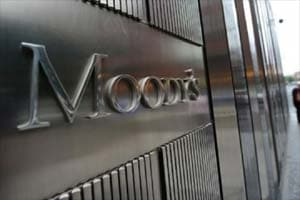Credit ratings agency Moody’s Investors Service on Tuesday changed the outlook on JSW Steel Ltd from stable to negative, while affirming its Ba1 corporate family rating and senior unsecured ratings on the steel maker.
“Our change in the rating outlook to negative from stable has been prompted by the continuing deterioration in steel prices because of cheaper imports and expectations of only a modest recovery,” said Kaustubh Chaubal, a Moody’s Vice President and Senior Analyst.
The ratings agency says that the decline in prices of steel is hurting its credit metrics, even while JSW Steel could increase domestic sales by diverting export volumes to the Indian market and through its retail network.
Moody’s says JSW Steel’s earnings for the first half of the fiscal year ending March 2016 were weak, with consolidated revenue declining 18% to Rs221.3 billion while its consolidated Ebidta fell 39% to Rs33.5 billion.
The agency says weak earnings were a reflection of the pressure on steel prices persists with the continuing cheap imports from China, Korea, and Japan into India, which grew 42% on volumes during April-September 2015 compared to a year earlier. The imports have impacted the prices of Indian hot rolled coil by 37% leading to JSW Steel’s blended realizations to fall 20% to Rs31,215 per tonne from Rs39,152 per tonne, it says. Ebidta per tonne also declined 41% to Rs4,882 compared a year earlier.
The Indian government’s move to impose a 20% safeguard duty on certain categories of hot rolled coil steel for 200-days from September 14 will help prices during the current fiscal, though modestly, it says.
“Despite management’s best efforts, the drop in steel prices cannot be easily offset and so, in view of reported consolidated EBITDA of INR94 billion in FY15, we expect EBITDA of around INR76 billion in FY2016,” says Chaubal, the lead analyst for JSW Steel.
Moody’s added that the negative outlook reflects the pressure on leverage arising from weak steel prices and, while measures to conserve cash may well be undertaken, the decline in EBITDA is likely to outpace any reduction in debt from current levels. “The ratings could also come under pressure if the company adopts an overly aggressive acquisition or capex policy,” it added.

